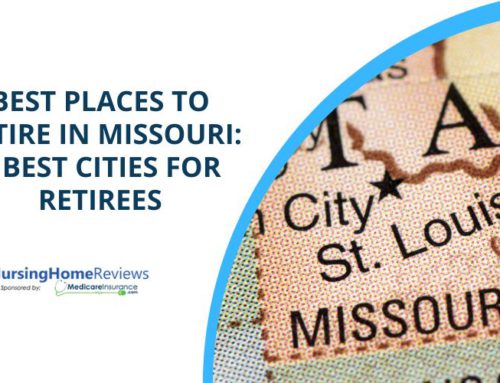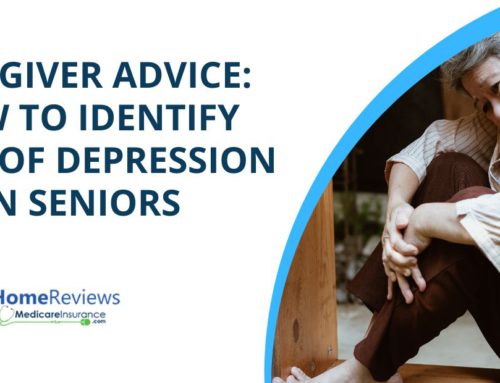
Alzheimer’s vs. Normal Aging: Understanding the difference.
We all know the stereotype: the older a person is, the more likely they are to be confused or forgetful. However, there is a fine line between the usual memory loss and brain fog that accompanies normal aging and actual symptoms of dementia or Alzheimer’s.
But because the differences are so subtle, it can sometimes be challenging to determine whether the cognitive issues you may be experiencing are a serious cause for concern. So, how can we tell when these issues are not just a part of our normal aging process? Learn more right here at Nursing Home Reviews.
Looking for a nursing home?
If you or a loved one is beginning to experience significant memory issues, relocating to a nursing home may be best. Start your search today.
What are some common warning signs of Alzheimer’s Disease?
Alzheimer’s Disease is a serious health condition. While it is one of the most common cognitive issues that affect seniors, it is important to take it very seriously. If you start to display any early warning signs of dementia, be sure to seek medical advice immediately.
Keep in mind that it isn’t out of the ordinary to experience memory issues to some small degree on occasion, but if you start to notice that these issues are becoming more frequent, this is the time to contact a medical professional. The following are a few common signs of Alzheimer’s Disease and/or dementia:
Memory loss is disrupting your daily life.
In the early stages of Alzheimer’s, memory loss can begin to make it extremely difficult to accomplish daily tasks. For example, if you are forgetting things you only just heard a minute ago, are becoming increasingly reliant on paper or electronic reminders, or if you find yourself asking the same questions over and over again, this may be a cause for concern.
You may sometimes forget names or appointment dates as a part of normal aging; but usually, you will not have much difficulty recalling them later. This is a main difference when it comes to normal aging vs. dementia.
It is becoming increasingly difficult to plan or solve simple problems.
Some people with early-stage Alzheimer’s may begin to experience difficulty with developing and following a plan or solving simple problems. For example, they may have trouble following a familiar recipe or keeping track of monthly bills. When attempting to problem solve, they may start taking much longer to concentrate and act.
Typically, occasional minor errors, like forgivable mistakes when balancing a checkbook for example, is a common age-related change. However, if these errors start to become frequent and grievous, it may be time to look into getting some help.
Familiar tasks are becoming a struggle.
Another concerning warning sign of Alzheimer’s is difficulty completing familiar tasks at home, at work, or in leisure. If you notice that you or your loved one is starting to struggle with relatively simple tasks, like using the TV remote or remembering the rules of a beloved card or board game, this may be a sign that a more serious problem is afoot.
On the other hand, requiring occasional assistance with unfamiliar tasks, like changing the settings on a cell phone or recording a television show, is usually quite normal as we age.
You’ve been misplacing things more frequently and have trouble retracing your steps.
A person who is afflicted with early-stage Alzheimer’s may put things in unusual places or begin to misplace items more frequently. In addition, they may start to experience problems retracing their steps. On occasion, they may begin to accuse others of stealing or intentionally antagonizing.
It is typically quite normal to misplace small objects like keys, eyeglasses, or the TV remote, but if this starts to happen all the time and you find that retracing your steps is becoming quite a challenge, be sure to check with your doctor about the possibility of dementia.
Time seems to be moving more quickly or slowly than usual.
Frequently losing track of dates, time, seasons, and holidays is another common early symptom of Alzheimer’s Disease. If something is not happening immediately, a person with dementia may misunderstand or be unable to comprehend when and where something is happening.
Simple misunderstandings, like forgetting the date or day of the week but figuring it out on your own, is normal as we age and is usually not a cause for concern, so long as this forgetfulness is not having a drastic effect on your life.
You are experiencing new or worsening problems with words in speaking or writing.
Verbal and written communication can start to become much more difficult when someone begins to develop Alzheimer’s. Repeating yourself or losing your train of thought often is an issue that should be addressed as soon as possible. Furthermore, issues with basic vocabulary, trouble finding the right word for something, or accidentally calling people or objects by the wrong name without realizing it are also causes for concern.
An example of a typical age-related change as it pertains to verbal and written communication may be sometimes having trouble finding the word to describe more complex thoughts, or calling a grandchild by another family member’s name but then immediately correcting yourself.
You’ve been withdrawing from friends and family.
Feeling like your mind is slipping can be frustrating, stressful, and embarrassing. As a result, someone who is experiencing significant issues with memory loss may start to withdraw socially, removing themselves from favorite hobbies, projects, or sports news.
As we age, feeling exhausted by work, friends, family, and social obligations is not out of the ordinary, but if you find that you would rather be reclusive than engaging more often than not, speaking to your doctor can be a good idea.

What can I do to prevent cognitive decline?
You may be pleased to know that there are quite a few options for preventative maintenance that may help to keep you sharp as you age. In fact, recent studies suggest that replacing unhealthy behaviors with healthy ones can often have a hand in preventing a multitude of health problems, including cancer, diabetes, heart disease, and even dementia.
The following are a few things you can do to help prevent both physical and cognitive decline as you age:
- Quit smoking: There has been significant evidence that putting a stop to tobacco use can help you maintain brain health and reduce your risk of smoking-related diseases.
- Maintain healthy blood pressure levels: High blood pressure is a contributing factor when it comes to so many health problems. Learning how to manage blood pressure with healthy stress-relieving techniques may be helpful.
- Maintain healthy blood sugar levels: Managing your blood sugar through eating healthy and responsibly is imperative to maintaining both physical and mental health, especially if you have a condition like diabetes.
- Stay active and maintain a healthy weight: CDC studies show that physical activity can improve cognition, mood, and even help you sleep better. In addition, staying at a healthy weight for your age and body type is important.
- Get plenty of sleep: More than one-third of American adults report that they have difficulty getting the recommended amount of sleep. Sleep helps recharge our brains and keep us physically healthy as we age.
- Stay engaged with others: There are many ways for seniors to stay socially active both in their family and in their community. Keeping your social skills sharp is incredibly important the older you get.
Grow and learn in the ideal retirement community.
You can begin your search for the perfect nursing home or assisted living facility today.
What can I do if I am diagnosed with Alzheimer’s Disease or dementia?
If you are eventually diagnosed with dementia or Alzheimer’s Disease, don’t panic. Luckily, there are many ways to maintain a full and happy life even with these conditions. In fact, there may even soon be medicine-based approaches to Alzheimer’s treatment, if recent pharmaceutical advancements are to be believed.
That said, it is important that those affected by Alzheimer’s Disease are able to thrive in a safe and healthy environment. At some point, an assisted living facility or nursing home may actually be your best option.
At Nursing Home Reviews, our goal is to connect seniors and other people who are in need of full-time care with their ideal retirement community; one that can help them achieve their goals, stay socially active, and enjoy their golden years to the highest possible degree.
On our site, you can research and compare thousands of nursing homes and assisted living facilities in an effort to find your perfect match. Feel free to sign up for an account today, and start checking out all manner of reviews, ratings, and relevant reports. We look forward to assisting you!





